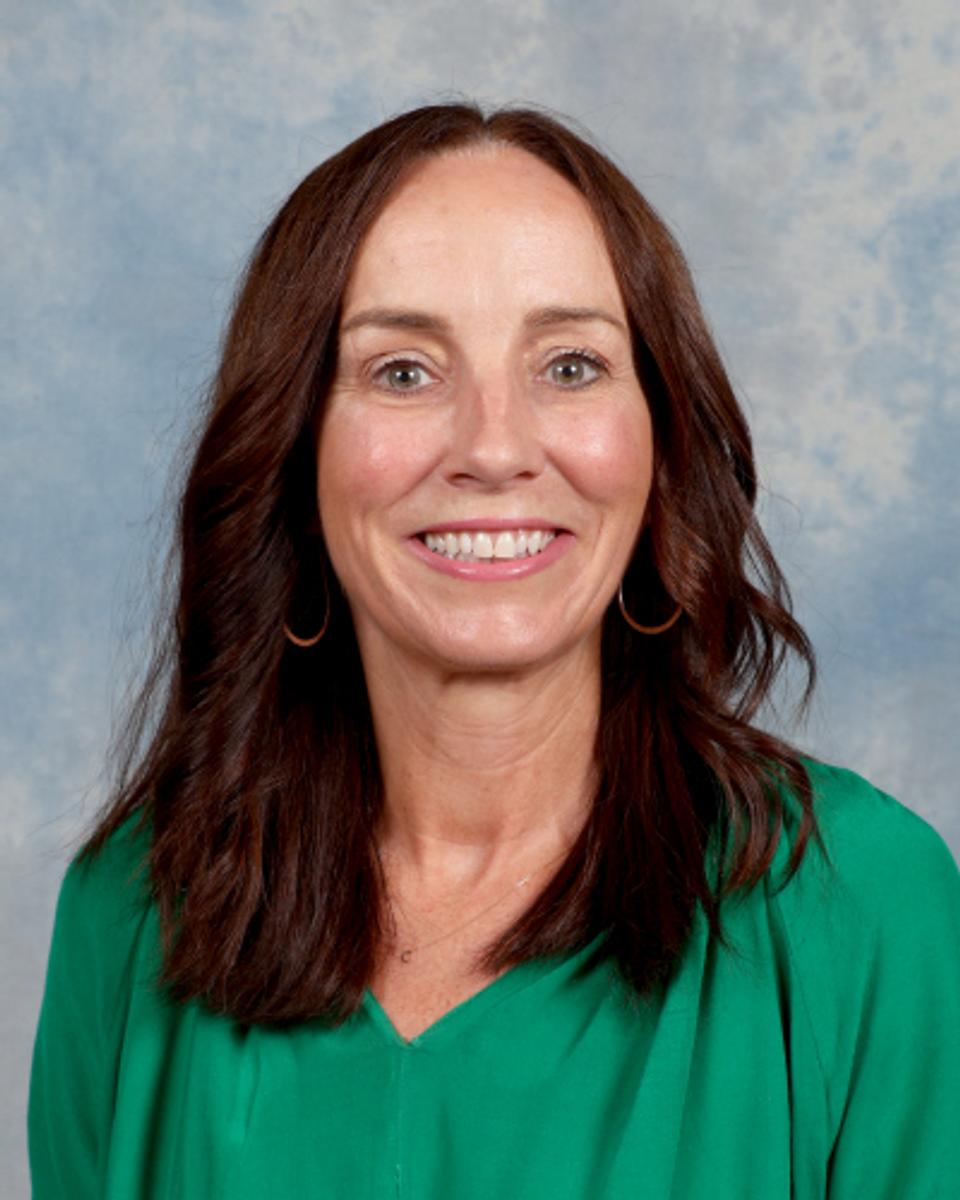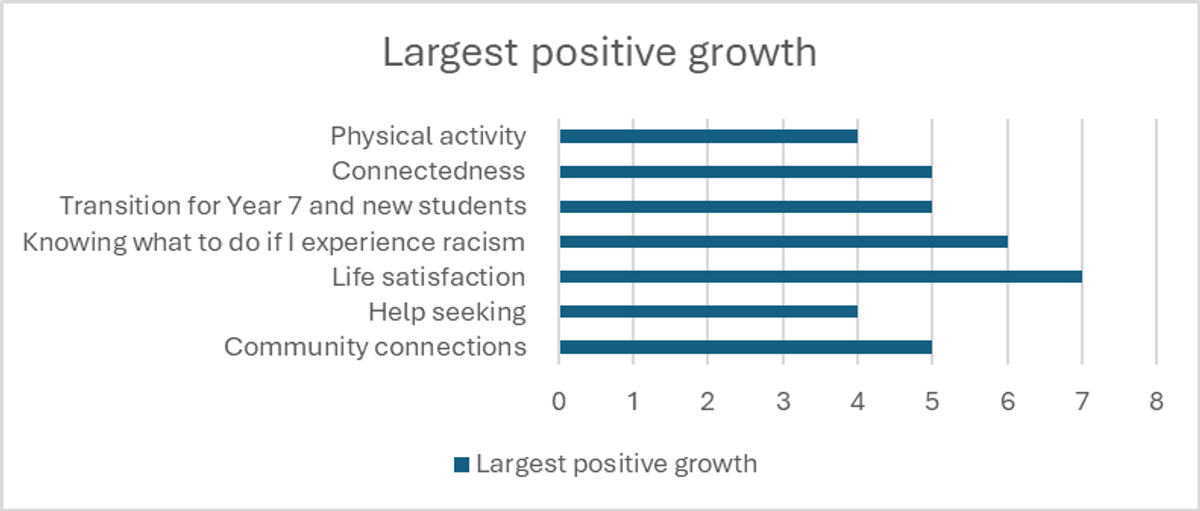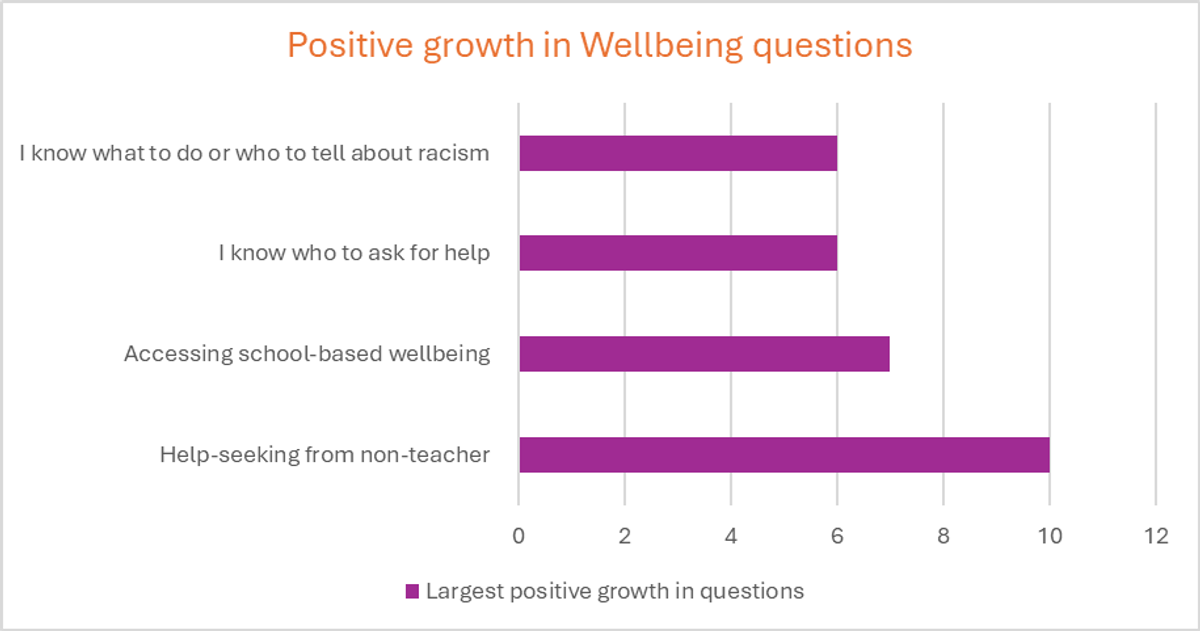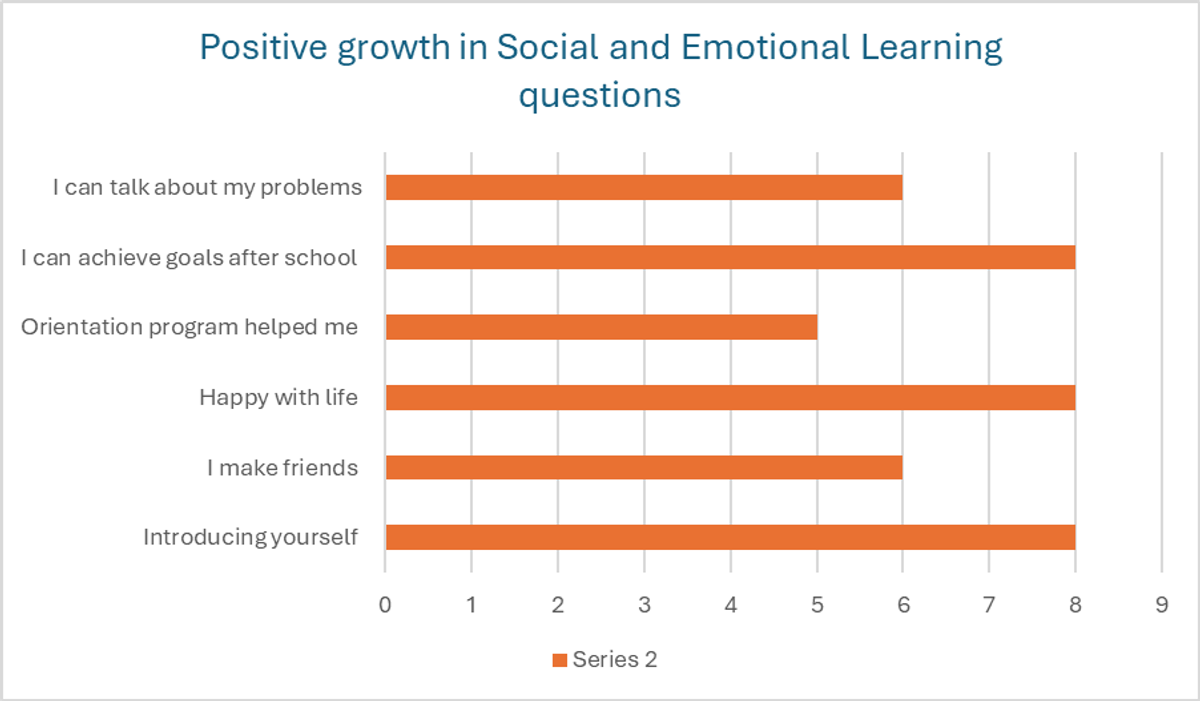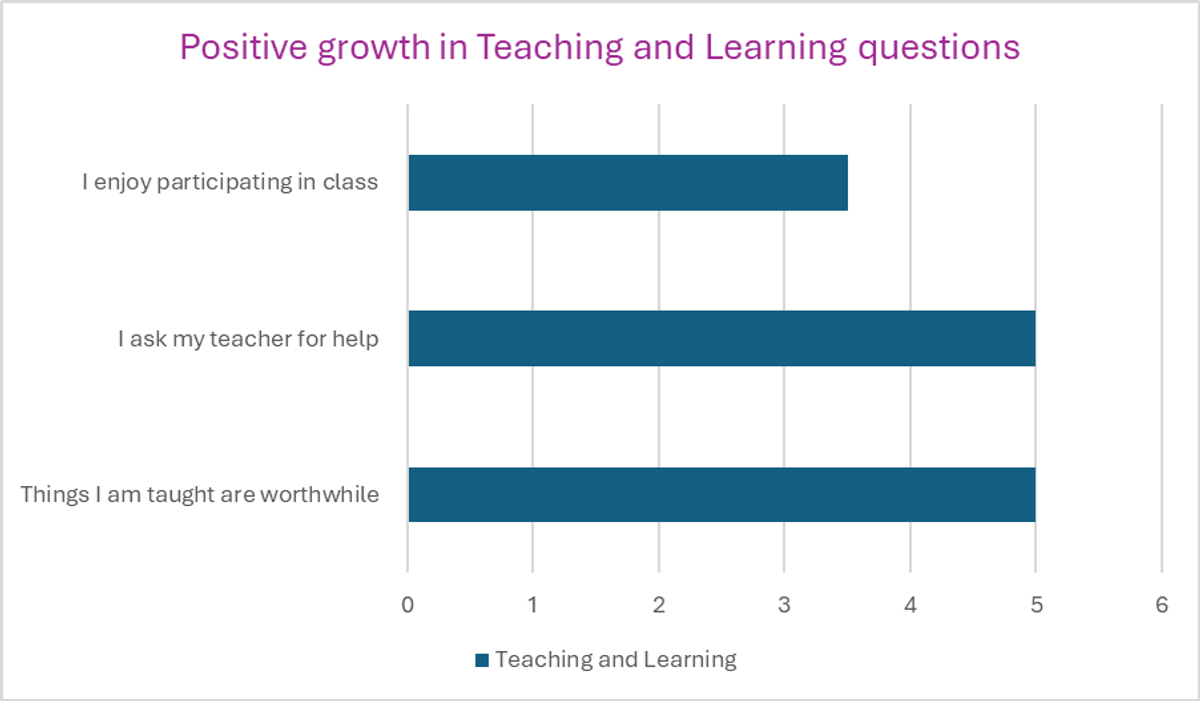BSC ATOSS results

Claudia Johnson
Assistant Principal - Wellbeing & Engagement
Every year, Brunswick Secondary College has every student undertake the Attitudes towards School Student (AtoSS) survey. The survey has questions about teaching, learning, school environment, safety and health. The survey results are anonymous, but the collated results help us identify strengths in the school, as well as areas to focus our efforts on for further improvement. The school looks for how many students respond (positively or negatively) to the survey questions.
2024 AtoSS results
We are pleased to see that the AtoSS data for 2024 showed increases in positive endorsement since last year in almost all areas. This is a clear and happy sign that the post-pandemic slump in attitudes towards school is reversing.
83% of areas (that is 29 out of 35 areas) increased in percentage of positive endorsement. One area remained the same and five went down.
Most percentage increases were strong (an increase of between1-4 percentage points), 17% of questions (22/128) increased significantly by 5 or more percentage points, and 1 question increased by 10 percentage points – this question was about accessing wellbeing.
So, the gains since last year have been notable, and at times, exceptional. The Wellbeing Team is to be commended for their excellent accessibility and responsiveness to students.
There have been many government initiatives to address declining attitudes towards school, including the Tutor Initiative and a focus on wellbeing services. Schools across Victoria have also experienced increases in positive endorsements, but comparatively BSC experienced bigger gains. BSC is closing the gap with similar schools, and with pre-pandemic BSC data.
The largest growth was in areas of:
- Community connections +5%
- Help seeking +4%
- Life satisfaction +7%
- Knowing what to do if I experience racism +6%
- Physical activity +4%
- Transition for Year 7 and new students +5%
- Connectedness +4%
Health and Wellbeing
Compared to other school in Victoria, BSC students are more connected to their community, access support services more, use electronic devices more responsibly, are more resilient, are much more physically active and report better physical health. This is a credit to parents and carers and contributes to students being prepared to perform at their best at school.
Students report knowing how to ask for help and following though getting wellbeing help. This is a credit to the sub schools and wellbeing teams with the unconditional positive regard, care, and attention they provide to students.
While students report knowing what to do if they experience racism, and that the school manages dealing with racism well, the school showed its only decline in positive endorsement in the question on student experiencing racism (-6%). This means more students experienced racism compared to last year. This will be a focus as we think about our planning for 2025, and suggests a need for an approach to builds kind, inclusive attitudes in young people.
Social and emotional learning
Notable growth in specific questions highlighted that students were relearning and reusing interpersonal relationship skills to build strong friendships. Our Home Group and transition programs will continue to focus on developing these social and emotional learning skills. Ms Tamara Ghazale, the Junior School Leader, and Ms. Barbara Moss, the Year 7 Coordinator, have warmly led the transition of students into secondary school, and directly supported students to feel welcome and connected.
Teaching and Learning

